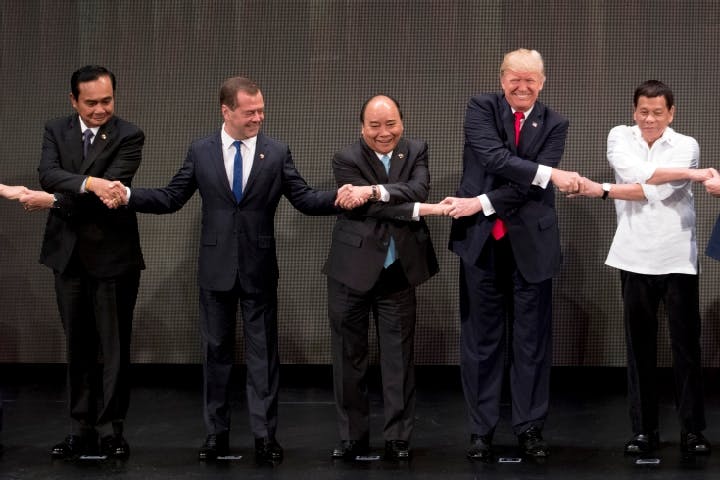Fall 2018
A Time for Positive-Sum Power
– Joseph S. Nye
The terms “liberal international order” and “Pax Americana” have become obsolete as descriptions of the global architecture. In today’s world, it is the most connected states that are the most powerful.
Donald Trump’s proclamation of “America first” is a repudiation of Woodrow Wilson. Granted, some scholars who are not sympathetic to Trump believe that the Wilsonian tradition has been a trap for the United States. The distinguished University of Chicago scholar John Mearsheimer has recently argued that states that embrace liberal hegemony invariably get into serious trouble because liberalism has an activist mentality woven into its core. He cites George W. Bush, who said in a 2003 speech: “From the Fourteen Points to the Four Freedoms, to the speech at Westminster, America has put our power at the service of principle… And we believe that freedom – the freedom we prize – is not for us alone, it is the right and the capacity of all mankind.” The result, says Mearsheimer, is that the U.S. has been at war for two out of every three years since 1989, fighting seven different wars in total. In his view, a liberal foreign policy is not a formula for cooperation and peace, but for instability and conflict.
Wilson’s liberal legacy, however, was two-fold: the promotion of liberal democracy and the creation of multilateral institutions. Order rests on a relatively stable distribution of power, as realists like Mearsheimer correctly describe, but it also benefits from an institutional framework that enhances cooperation to manage security, economic, and ecological interdependence. Alliances can enhance stability, but security is also enhanced by the existence of institutions like the United Nations and the non-proliferation regime. Economic globalization can be disruptive, but it also creates wealth, and cooperation to maintain financial stability can be crucial to the lives of millions of Americans and foreigners alike. And whatever happens to economic globalization, ecological globalization will remain. The politics of science denial does not reverse physical forces. States will need a framework to enhance cooperation for uses of the sea, space, and coping with climate change.
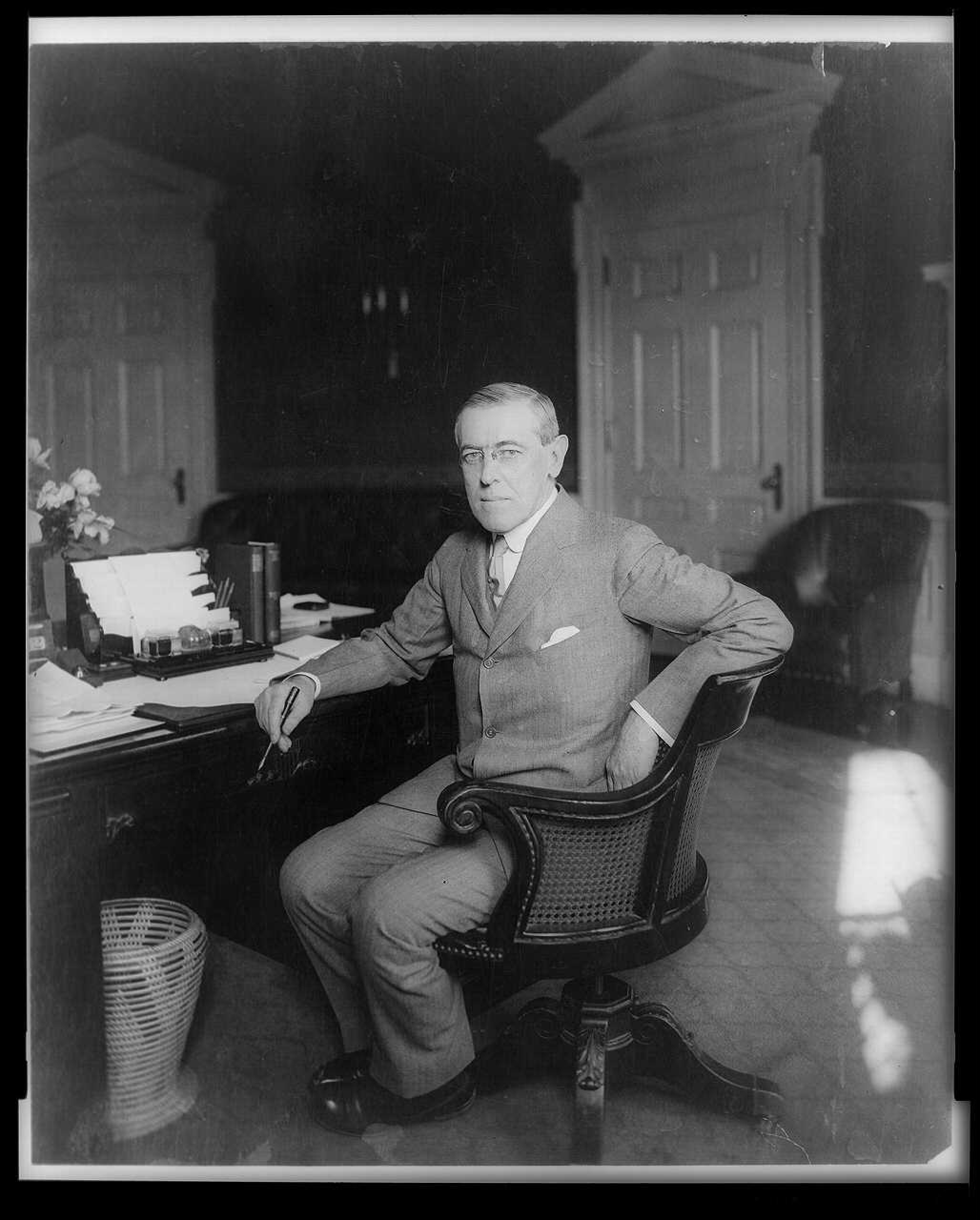
Referring to such frameworks as a liberal international order conflates the two aspects of Wilson’s liberal legacy. The degree of policy intervention a president chooses regarding democracy promotion is different from the degree of support for multilateral institutions designed to cope with security and modern interconnectedness. We can criticize excesses like the effort to democratize Iraq at the point of a gun without criticizing the overall liberal order of institutions that manage interdependence.
The U.S. and Global Public Goods
After Wilson sent two million Americans to fight in Europe and tipped the outcome of the war, it was clear that the U.S. was not only the world’s largest economy, but also crucial to the global balance of power. In the absence of a global government, the world depends on the most powerful country to provide a degree of order and global public goods, such as security, economic stability, and protection of global commons, like freedom of the seas. But when the Senate rejected the Treaty of Versailles and Wilson’s League of Nations, the U.S. failed to act in its new role, and instead continued to behave as a free rider in the provision of global public goods (which Britain had led in the 19th century but could no longer afford).
Instead, America “returned to normal.” Public opinion came to see intervention in World War I and efforts to create a world order as a huge mistake. The United States became isolationist in the 1930s, and not even the eloquence of Franklin Roosevelt could persuade the American people to stand up to Hitler’s threat. The absence of an American-led liberal order resulted in an immoral decade of economic depression, genocide, and world war.
Roosevelt saw the mistakes of the 1930s and began a planning process to create the Bretton Woods international economic institutions in 1944 and the UN in 1945. The turning point was Harry Truman’s post-war decisions that led to permanent alliances and a military presence abroad. When Britain was too weak to support Greece and Turkey in 1947, the U.S. took its place. It invested heavily in the Marshall Plan in 1948, created NATO a year later, and led a UN coalition that fought in Korea in 1950. In 1960, Dwight Eisenhower signed a new security treaty with Japan.
While Americans have had bitter debates and partisan differences over intervention in countries such as Vietnam, and more recently, Iraq, the issue of a liberal international order has been much less contentious.
These actions were part of the strategy of containment of Soviet power, a realist policy that could be interpreted in various ways. Some decisions had questionable ethical justification, such as the overthrow of governments in Guatemala, Iran, Congo, and elsewhere. Perhaps most notorious was the intervention in Vietnam, where a series of American presidents feared the domestic political consequences as much as the international ones. Intervention was justified by a metaphor of dominos falling to communism, and the ultimate effect of such a scenario on the balance of power in a bipolar world.
While Americans have had bitter debates and partisan differences over intervention in countries such as Vietnam, and more recently, Iraq, the issue of a liberal international order has been much less contentious. The theologian Reinhold Niebuhr praised the “fortunate vagueness of liberal internationalism” which saves it from ideological rigidity. Unfortunately, with victory in the Cold War and a unipolar structure of world power, Americans succumbed to hubris. The liberal scholar Tony Smith argues in Why Wilson Matters that the result was “neo-Wilsonianism,” a combination of neoliberalism and neoconservatism that combined global markets, forceful democracy promotion, and American leadership. Meanwhile, at home, a significant number of voters felt left out politically and economically.
That sentiment culminated in the 2016 election, when Trump discovered the effectiveness of arguing to an already polarized electorate that the alliance system and multilateral institutions of the post-1945 order – the bedrock consensus in American foreign policy for seven decades – had let others benefit to the disadvantage of the U.S.
The China Challenge
As this deviation occurs in the U.S. government’s take on the world, there are two major power shifts affecting the current century that pose their own challenges to multilateralism. The “horizontal” shift is the recovery of Asia. Particularly important is the rise of China, and the danger of conflict caused by the fear created in a dominant great power by the rise of a new power. Some think this century will be devastated by a war like World War I, when Britain was challenged by the rise of Germany.
The other great power shift is “vertical,” in which the information revolution that started in the 1960s is empowering more actors than at any time in history. This second power shift has sometimes been called the new feudalism. Cyberpower has increased the role of non-state actors; they do not replace the role of governments, but crowd the stage on which governments act, creating new instruments and potential alliances. In addition, increased economic, political, and ecological interdependence create more transnational linkages and issues which are outside the control of governments. Such global interdependence has had redistributive effects within societies, altering domestic politics.
Failure to manage the rise of China successfully could have disastrous consequences, but as I argue in Is the American Century Over?, China is not about to replace the U.S. as the world’s largest power and we should be wary of demonizing the country. While some observers worry about a war with an empowered Beijing, there is an opposite danger that China may act too weak rather than too strong and fail to contribute to a multilateral order that it did not help to create.
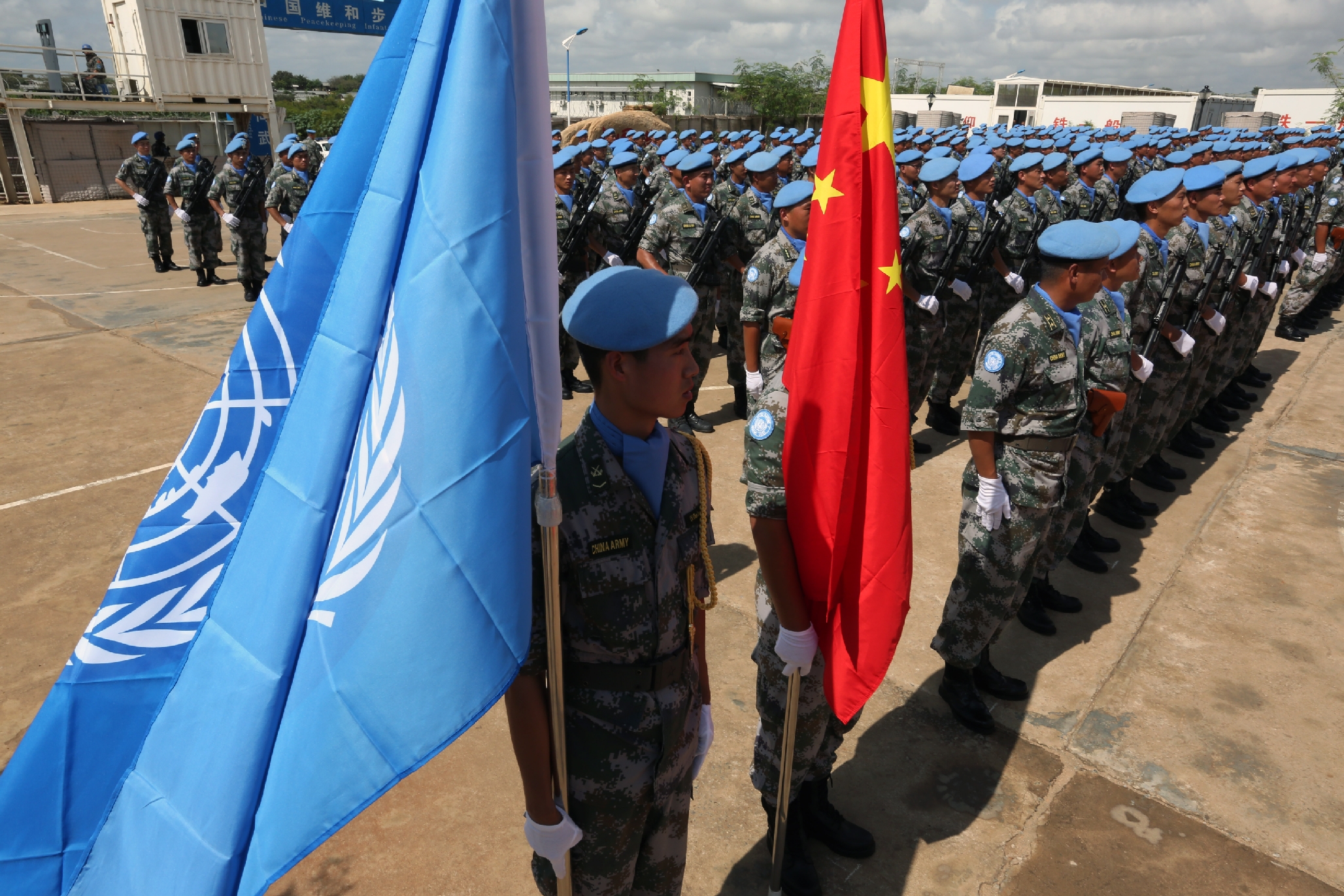
But this overstates the “not invented here” problem. That is, China benefits from the post-1945 multilateral order. In the UN Security Council, China is one of the five countries with a veto. China is now the second-largest funder of UN peacekeeping forces and participated in UN programs related to Ebola and climate change. It has also benefited greatly from economic institutions such as the World Trade Organization and the International Monetary Fund. China has started an Asian Infrastructure Investment Bank and a “Belt and Road” set of international infrastructure projects that some see as an alternative to the World Bank, but the AIIB adheres to international rules and cooperates with the World Bank. In 2015, Beijing joined with Washington in developing new norms for cyberconflict and climate change mitigation.
On the other hand, China has not practiced full reciprocity as a market economy, and China’s rejection of the Law of the Sea tribunal regarding the South China Sea has raised questions about whether China would treat its legal obligations a la carte. Overall, Chinese behavior so far has not tried to overthrow, but rather, to increase its influence within, the multilateral order from which it benefits. This could change as Chinese power grows.
The more relevant question will be whether the U.S. and China will learn to cooperate in producing global public goods.
In any event, with that growth in power, the American-led liberal world order will have to change. For one thing, power will need to be shared, and China has little interest in liberalism or U.S. domination. Analysts would be wise to discard the terms “liberal” and “American” and refer to the prospects of an open international order or a rules-based multilateral order. As China, India, and other economies grow, the U.S. share of the world economy will be less than it was at the beginning of this century, and the rise of other countries will make it more difficult to organize action – even as the U.S. will continue to lead in terms of overall power resources.
Rapid Asian economic growth has encouraged a power shift to the region, but within it, Chinese power is balanced by Japan, India, and Australia, among others. The U.S. will remain crucial to that Asian balance of power. If Washington maintains those alliances, the prospects are slight that China can drive the U.S. from the Western Pacific, much less dominate the world. The more relevant question will be whether the U.S. and China will learn to cooperate in producing global public goods.
The ‘Vertical’ and the Transnational
The second major shift in progress is the diffusion of power away from governments. The current information revolution is putting transnational issues like financial stability, climate change, terrorism, cybercrime, and pandemics on the global agenda – at the same time as it tends to weaken the ability of all governments to respond. Complexity is growing. One model for the future is great power conflict or concert, but a second model involves “information entropy.” In that world, the answer to the question “Who’s next?” is “No one.”
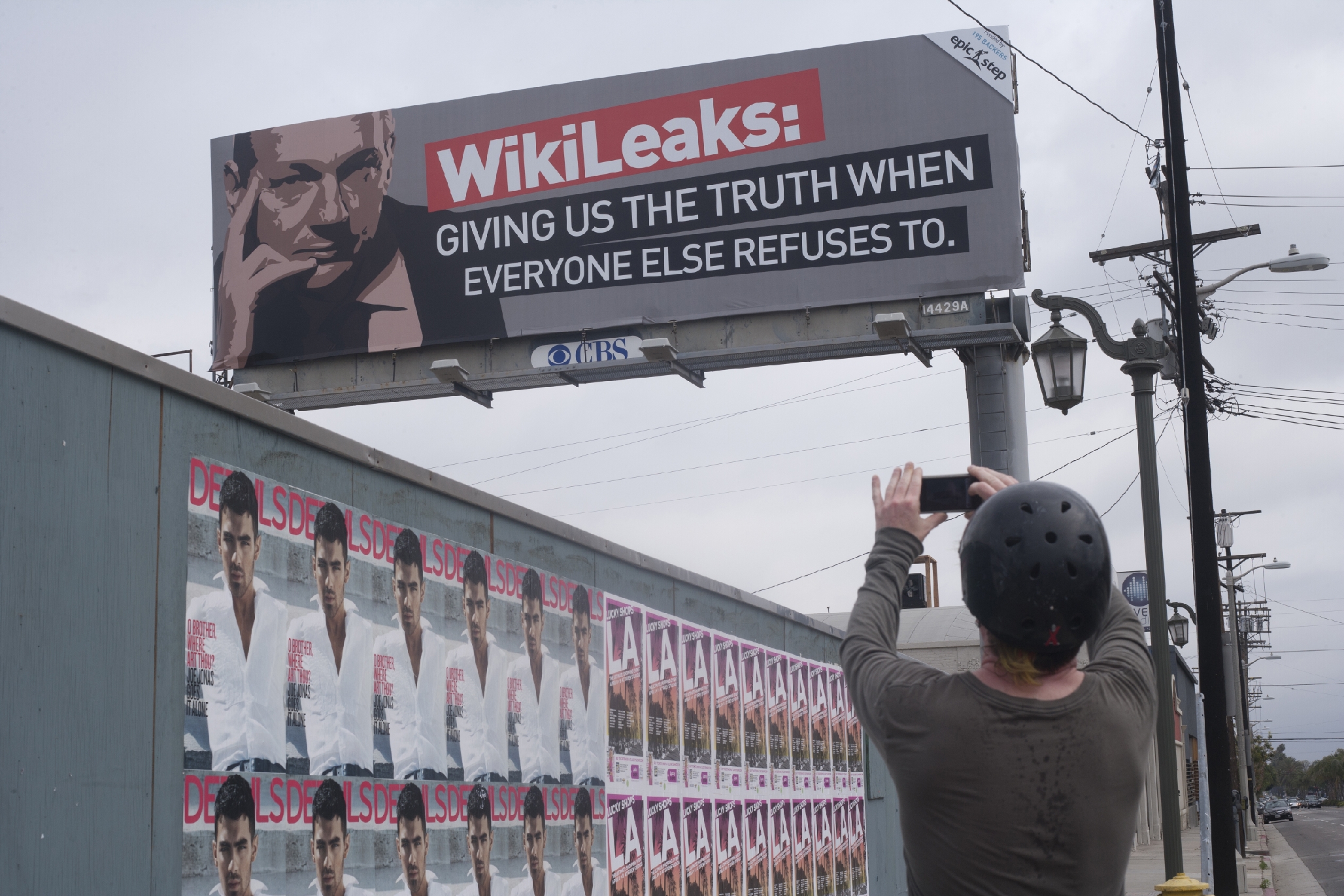
While this answer is too simple, it does indicate important trends that will affect the place of the U.S. and others in the world. World politics will not be the sole province of governments, as individuals and private organizations – ranging from WikiLeaks to corporations to NGOs to terrorists to spontaneous societal movements – are all empowered to play direct roles in world politics. The spread of information means that power will be more widely distributed and informal networks will undercut the monopoly of traditional bureaucracy. As of 2018, there are about 20 billion devices connected to the internet, and most are autonomous.
Even if the U.S. remains the largest power, it cannot achieve many of its international goals acting alone. That means the case for providing leadership in multilateral institutions remains stronger than ever. In some areas of military and economic goods, unilateral American leadership can provide a large part of the answer. But on the new transnational issues, while American leadership will be important, success will require the multilateral cooperation of others: International financial stability is vital to the prosperity of Americans, but the United States needs the cooperation of others to ensure it. Regardless of potential setbacks to economic globalization, environmental globalization will increase. Climate change and rising sea levels will affect quality of life for everyone, but Americans cannot manage the problem alone. And in a world where borders are becoming more porous to everything from drugs to infectious diseases to terrorism, nations must use soft power to develop networks and build institutions to address shared threats and challenges.
In this sense, power becomes a positive-sum game. It will not be enough to think in terms of American power over others. One must also think in terms of power to accomplish joint goals, which involves power with others. The United States benefits if China improves its energy efficiency and emits less carbon dioxide. In this world, networks and connectedness become an important source of relevant power, and the most connected states are the most powerful.
The Need and the Threat
If the key to a multilateral world order is developing cooperation and valuing “power with” as well as “power over,” the opening years of the Trump administration are not encouraging. Every country puts its interests first, but the important question is how broadly or narrowly those interests are defined. Trump has shown an inclination toward narrow, zero-sum interpretations. At the same time, while Trump won the 2016 election, he did not win the popular vote, and in recent polls by the Chicago Council on Global Affairs, a large majority of Americans say globalization is mostly good for the U.S. and they continue to support multilateral engagement.
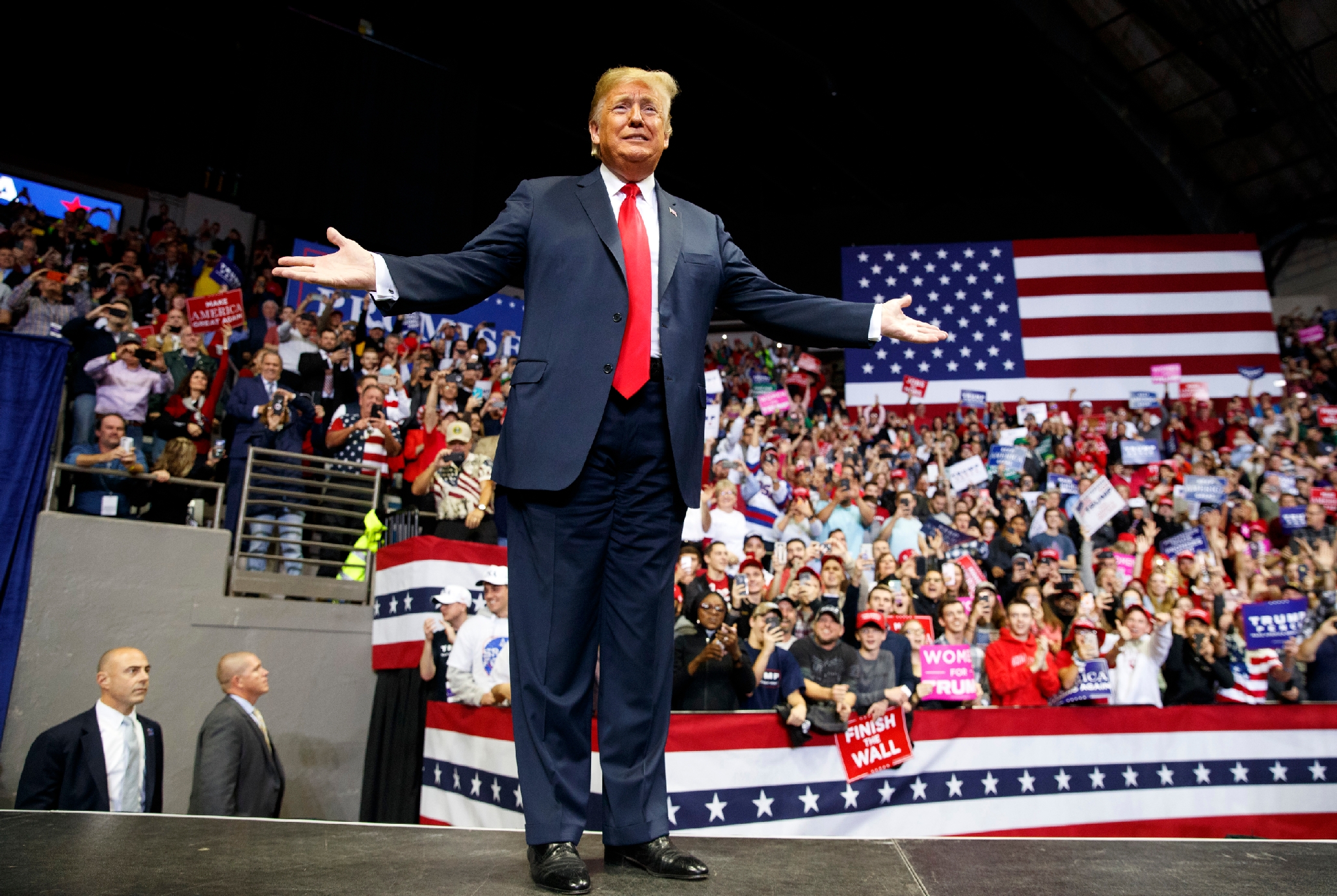
At mid-term in 2018, on the four major strands of the post-1945 liberal order – security, economics, global commons, and values such as human rights and democracy – the record is mixed. Thus far, while the Trump administration has weakened American alliances, it has not destroyed them. The security regimes for restraining proliferation of weapons of mass destruction are challenged, but remain in place. The damage to economic institutions, particularly those related to trade, appears to be greater than to the monetary order (where the dollar still dominates).
On global commons issues, the Trump administration has withdrawn U.S. participation in the Paris climate accord, but the substitution of natural gas for coal continues. As for values, Trump has shown less interest in human rights than his predecessors, and has often embraced authoritarian leaders. Some defenders argue that his unorthodox style and willingness to break institutions will produce major gains, but as The Economist argues, the institutional costs of using a wrecking-ball approach may reduce American power to deal with the new transnational issues that we face.
The terms “liberal international order” and “Pax Americana” have become obsolete as descriptions of world order, but the need remains for the largest countries to organize multilateralism for public goods. Leadership is not the same as domination. There have always been degrees of leadership and degrees of influence during the seven decades of American preeminence after World War II. Now with less preponderance and in a more complex world, American provision of global public goods, in cooperation with others, may be threatened more by the rise of populist nationalism at home than the rise of new powers abroad.
***
Joseph S. Nye (@Joe_Nye) is university distinguished service professor and former dean of the Kennedy School of Government at Harvard University. He has published 14 academic books, including Soft Power, The Future of Power, and Is the American Century Over? A former chair of the National Intelligence Council and assistant secretary of defense, he was a Wilson Center fellow in 1992-1993.
Cover photo: L to R: International leaders join hands during the opening ceremony of the ASEAN Summit in Manila, November 13, 2017. (Courtesy of AP)
